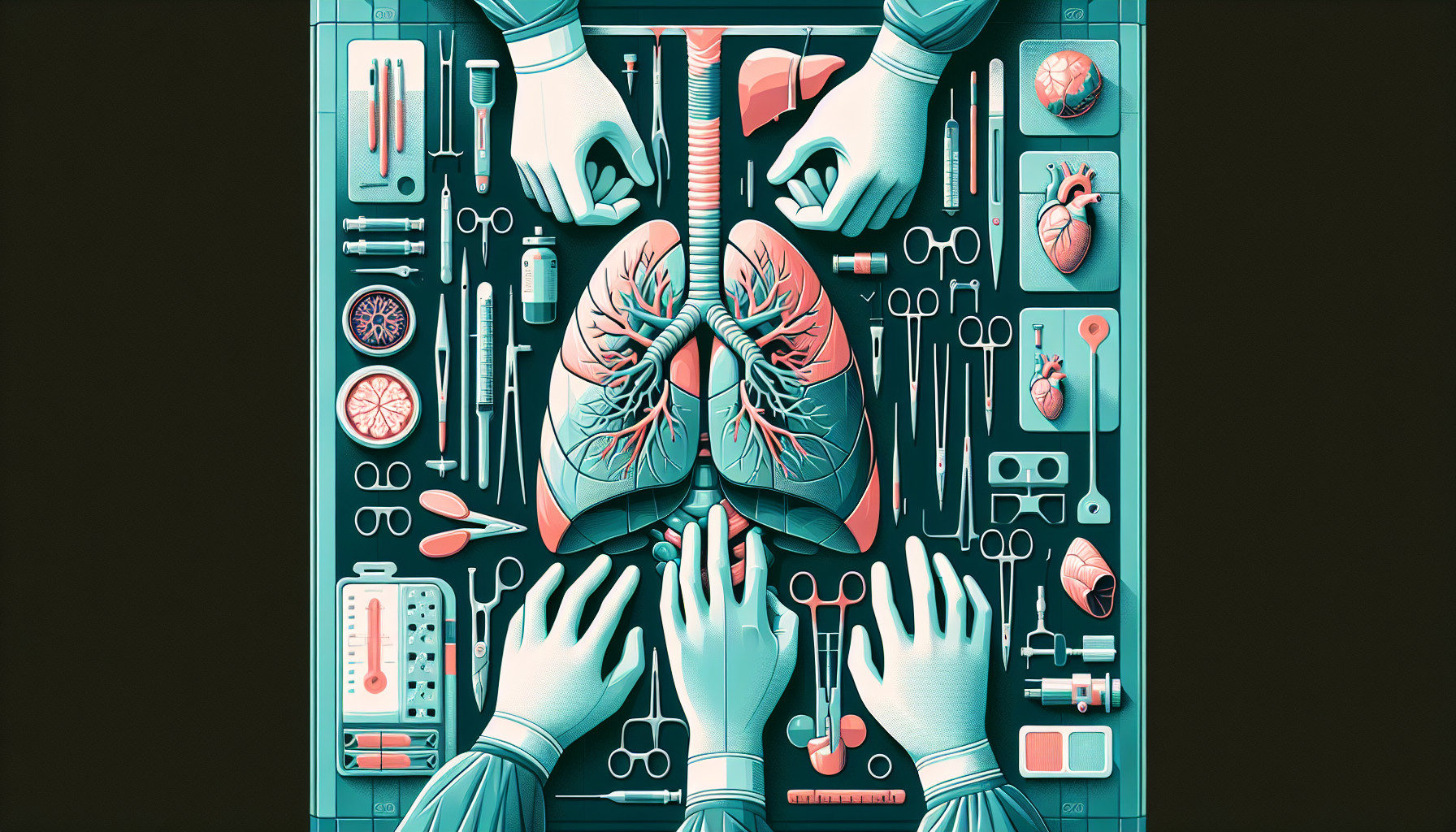Our Summary
This study looked at how well a certain medical center was following international guidelines for a procedure called mediastinal lymph node sampling (MLNS), which is an important part of lung cancer surgery. The researchers examined the records of 2380 patients who had surgery to remove lung cancer between 2013 and 2018. They found that overall, the center was following the guidelines about 72% of the time, and that they got better at following the guidelines over time, increasing from 45% in 2013 to 85% in 2018. They also found that patients who had surgery on the right side of their lung were more likely to have their lymph nodes sampled correctly. However, they did not find any link between correct lymph node sampling and survival rates. The researchers concluded that there is a need for national guidelines to help improve how this procedure is performed.
FAQs
- What is mediastinal lymph node sampling and how is it related to lung cancer surgery?
- What were the findings of this study in regards to the medical center’s adherence to international guidelines for mediastinal lymph node sampling?
- Did the study find any correlation between correct lymph node sampling and survival rates in lung cancer patients?
Doctor’s Tip
A helpful tip a doctor might tell a patient about lung resection is to ensure that the surgeon performing the procedure follows international guidelines for mediastinal lymph node sampling. Proper lymph node sampling is crucial for accurate staging of the cancer and determining the most appropriate treatment plan. Patients should discuss this with their surgeon before the procedure to ensure that all necessary steps are being taken to optimize outcomes.
Suitable For
Patients who are typically recommended lung resection include those with early-stage lung cancer that has not spread beyond the lungs, patients with certain benign lung conditions such as bronchiectasis or lung abscesses, and patients with advanced lung cancer who may benefit from surgery to relieve symptoms or improve quality of life. Additionally, patients who have not responded to other forms of treatment such as chemotherapy or radiation therapy may also be recommended for lung resection. It is important for patients to discuss their individual case with their healthcare provider to determine if lung resection is the best treatment option for them.
Timeline
Before lung resection:
- Diagnosis of lung cancer through imaging tests, biopsies, and other diagnostic procedures.
- Consultation with a thoracic surgeon to discuss treatment options, including the possibility of lung resection.
- Preoperative evaluations, including imaging studies and blood tests, to assess the patient’s overall health and fitness for surgery.
- Discussion of potential risks and benefits of lung resection surgery with the patient.
- Preoperative preparation, which may include quitting smoking, adjusting medications, and following dietary guidelines.
After lung resection:
- Surgery to remove part or all of the affected lung, typically performed under general anesthesia.
- Recovery in the hospital, with monitoring of vital signs, pain management, and assistance with breathing exercises.
- Gradual resumption of normal activities, including physical therapy to improve lung function.
- Follow-up appointments with the surgeon to monitor healing and discuss any ongoing symptoms or concerns.
- Long-term follow-up care, which may include imaging tests and regular check-ups to monitor for recurrence of lung cancer or other complications.
What to Ask Your Doctor
- What is the purpose of a lung resection in my case?
- What are the potential risks and complications associated with lung resection?
- How long is the recovery period after a lung resection?
- Will I need any additional treatments, such as chemotherapy or radiation therapy, after the surgery?
- How experienced are you in performing lung resections?
- What is your success rate with this procedure?
- Will I need a second opinion before proceeding with the surgery?
- How will my quality of life be affected after a lung resection?
- What can I do to prepare for the surgery and improve my outcomes?
- Are there any alternative treatment options to consider before undergoing a lung resection?
Reference
Authors: Taylor M, Evison M, Clayton B, Grant SW, Martin GP, Shah R, Krysiak P, Rammohan K, Fontaine E, Joshi V, Granato F. Journal: J Surg Res. 2022 Feb;270:271-278. doi: 10.1016/j.jss.2021.09.014. Epub 2021 Oct 27. PMID: 34715539
